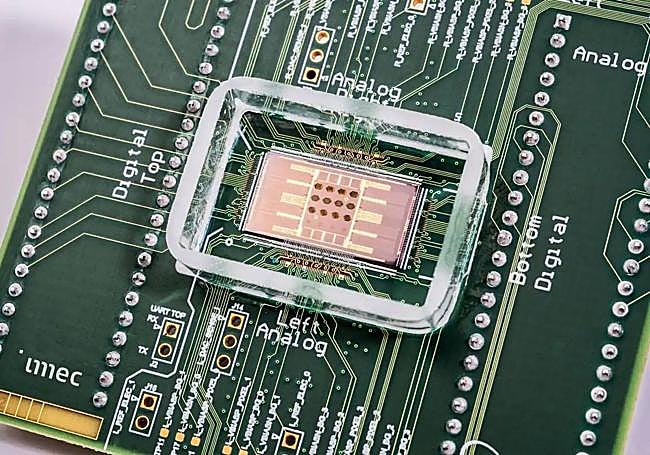Hollow aspirations
In Malaga, we can't aspire to be part of the technology of the future with a transport mobility system that is stuck in the past...
Ignacio Lillo
Malaga
Friday, 2 February 2024, 19:30
Like many, I am proud that Malaga is the chosen metropolis to host the Belgian research institute Imec: the global leader in both research and ... the practical application of technological advancements related to semiconductors. This is like saying that Malaga will be involved in almost everything to do with communication (mobiles), work (computers), transportation (cars), and appliances (TVs, household appliances, etc).
Out of all the cities where this kind of European lottery could have landed, it has come to the centre of the Costa del Sol; there must be something in the water (scant, by the way, in these parts) when Google blesses it along with a long list of tech giants, and now this institute, which is,out of all of them, the one with the greatest future projection.
Looking into this subject, at the mega headquarters that is going to be built on the expansion land at the technology park, (we locals will always call it the PTA, no matter how much they insist on calling it a TechPark), around 450 engineers will supposedly be expected to turn up for work every day
Now this is where it gets messy. I don't hear anyone, no one with enough authority anyway, explaining how, in this futuristic and sustainable Malaga, half a thousand people are expected to get to their offices; along with those from auxiliary industries and the other 25,000 who are already working there; even if, with this remote working thing, they don't have to go in person every day.
The part that worries me the most is that all these people will still have to come in private cars because no one has seriously proposed a high-capacity public transport system for this massive flow of people entering and leaving the park from Monday to Friday.
No one would think of building a housing development and putting a bunch of residents in a place without streets; similarly, an increase in companies at the technology park requires a corresponding mobility plan.
Moreover, the solution is simple and (relatively) inexpensive, and it involves building a branch of the C2 Cercanías commuter train, which would serve all workers residing in the central and western parts of the city, as well as on the Costa del Sol, and especially in the Guadalhorce valley.
Meanwhile it will be quite interesting to see the reaction of the engineers who arrive from all over the world to research microchips when they are told they'll need to buy a car to get to work. In Malaga, we can't aspire to be part of the technology of the future with a mobility system that is stuck in the past...
¿Tienes una suscripción? Inicia sesión
